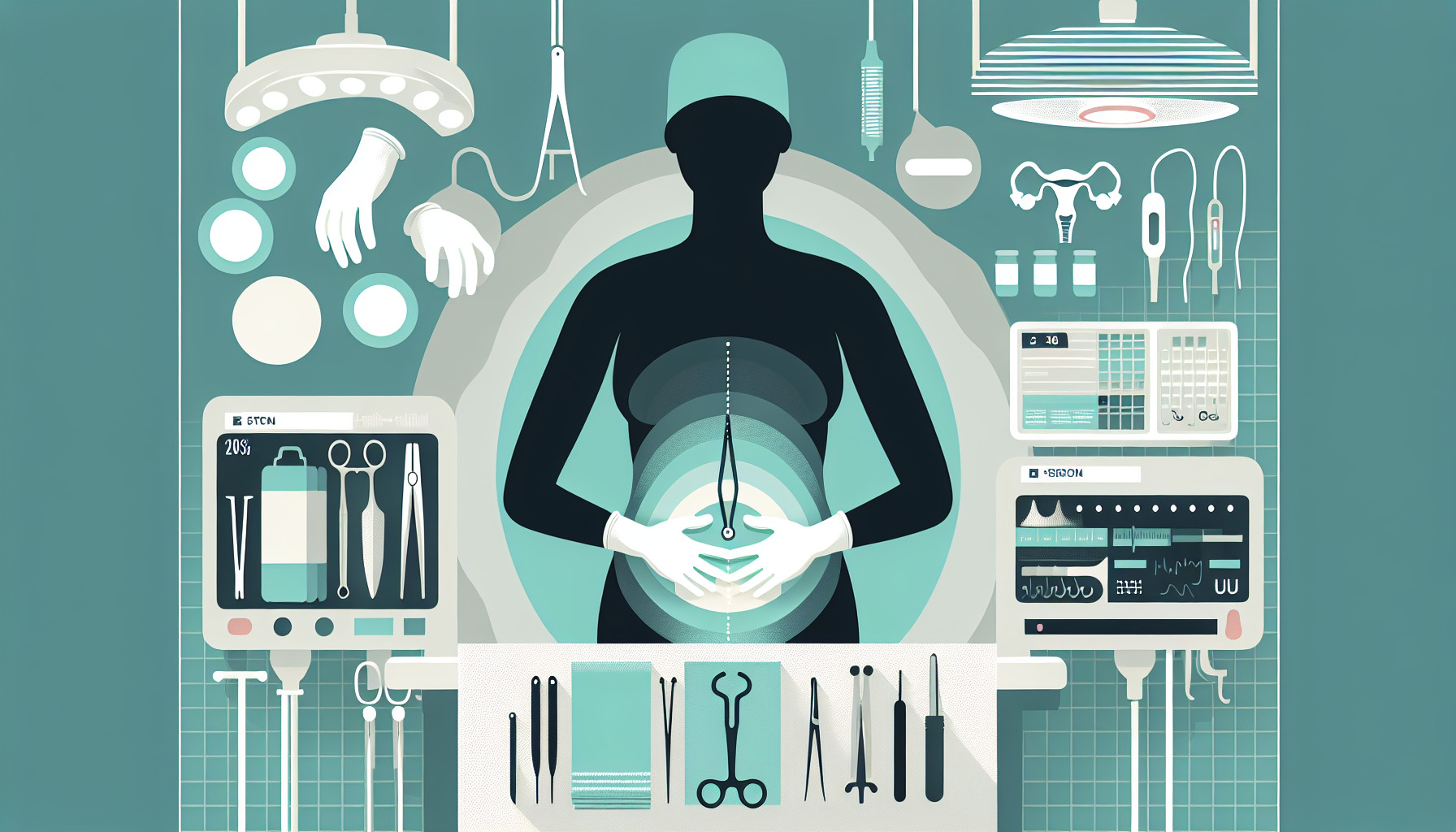Our Summary
This research paper investigates how having a hysterectomy (surgery to remove a woman’s womb) affects a woman’s sexual health. The researchers looked at a number of different studies to see the effects of hysterectomy on things like sexual desire, arousal, orgasm, pain during sex, and overall sexual satisfaction. From their findings, they concluded that for most women having a hysterectomy for non-cancerous conditions actually improved their sexual health. In fact, women who were sexually active before the surgery often reported the same or even better sexual function afterwards. The researchers suggest that educating women about potential post-surgery sexual issues could help them prepare and cope better, which could further improve their sexual health after a hysterectomy.
FAQs
- How does a hysterectomy affect a woman’s sexual health?
- Does sexual function improve or decline after a hysterectomy for non-cancerous conditions?
- How can education about post-surgery sexual issues help women who have undergone a hysterectomy?
Doctor’s Tip
One helpful tip a doctor might tell a patient about hysterectomy is to discuss any concerns or questions about sexual health before and after the surgery. It’s important to have open communication with your healthcare provider to address any potential changes or issues that may arise, and to explore ways to improve sexual function and satisfaction post-surgery. Additionally, seeking support from a therapist or counselor specializing in sexual health can also be beneficial in navigating any challenges that may arise.
Suitable For
Patients who are typically recommended hysterectomy include those with:
Uterine fibroids: These non-cancerous growths in the uterus can cause heavy menstrual bleeding, pelvic pain, and pressure on the bladder or bowel.
Endometriosis: This condition causes the tissue that lines the uterus to grow outside of it, leading to painful periods, pelvic pain, and infertility.
Adenomyosis: This condition involves the tissue that lines the uterus growing into the muscular wall of the uterus, causing heavy menstrual bleeding, severe cramps, and pressure in the pelvis.
Uterine prolapse: This occurs when the uterus slips down into the vagina due to weakened pelvic floor muscles, causing symptoms such as pelvic pressure, urinary incontinence, and difficulty with bowel movements.
Abnormal uterine bleeding: This can be caused by various factors such as hormonal imbalances, uterine polyps, or endometrial hyperplasia.
Pelvic inflammatory disease: This infection of the female reproductive organs can cause chronic pelvic pain and inflammation.
Gynecologic cancers: Hysterectomy may be recommended as part of treatment for cervical, ovarian, or uterine cancer.
It is important for patients to discuss their specific condition and treatment options with their healthcare provider to determine if a hysterectomy is the best course of action for them.
Timeline
Before hysterectomy:
- Patient may experience symptoms such as heavy menstrual bleeding, pelvic pain, or other gynecological issues
- Patient and doctor discuss treatment options, including the possibility of a hysterectomy
- Patient undergoes pre-operative tests and evaluations to determine if they are a suitable candidate for surgery
- Patient may have to make arrangements for time off work, childcare, and other responsibilities during the recovery period
After hysterectomy:
- Patient undergoes surgery to remove the uterus
- Patient is monitored in the hospital for a few days post-surgery
- Patient may experience pain, discomfort, and fatigue during the recovery period
- Patient gradually resumes normal activities and follows up with their doctor for post-operative care
- Patient may experience changes in sexual function and overall sexual health, which may improve over time with proper education and support
Overall, the timeline for a patient before and after hysterectomy can vary depending on individual circumstances and the specific reasons for the surgery. It is important for patients to discuss their concerns and expectations with their healthcare provider to ensure a successful recovery and overall well-being.
What to Ask Your Doctor
Some questions a patient should ask their doctor about hysterectomy include:
- What are the reasons for recommending a hysterectomy in my case?
- Are there any alternative treatments or procedures that could be considered instead of a hysterectomy?
- What are the potential risks and complications associated with the surgery?
- How will a hysterectomy affect my sexual health and function?
- Will I still be able to experience sexual desire, arousal, and orgasm after the procedure?
- Are there any specific changes in sexual function that I should expect after the surgery?
- How long is the recovery period, and when can I expect to resume sexual activity?
- Are there any specific exercises or practices that can help improve sexual function post-surgery?
- Are there any resources or support groups available for women undergoing a hysterectomy for non-cancerous conditions?
- How can I best prepare myself mentally and emotionally for the surgery and potential changes in sexual health?
Reference
Authors: Danesh M, Hamzehgardeshi Z, Moosazadeh M, Shabani-Asrami F. Journal: Med Arch. 2015 Dec;69(6):387-92. doi: 10.5455/medarh.2015.69.387-392. PMID: 26843731
